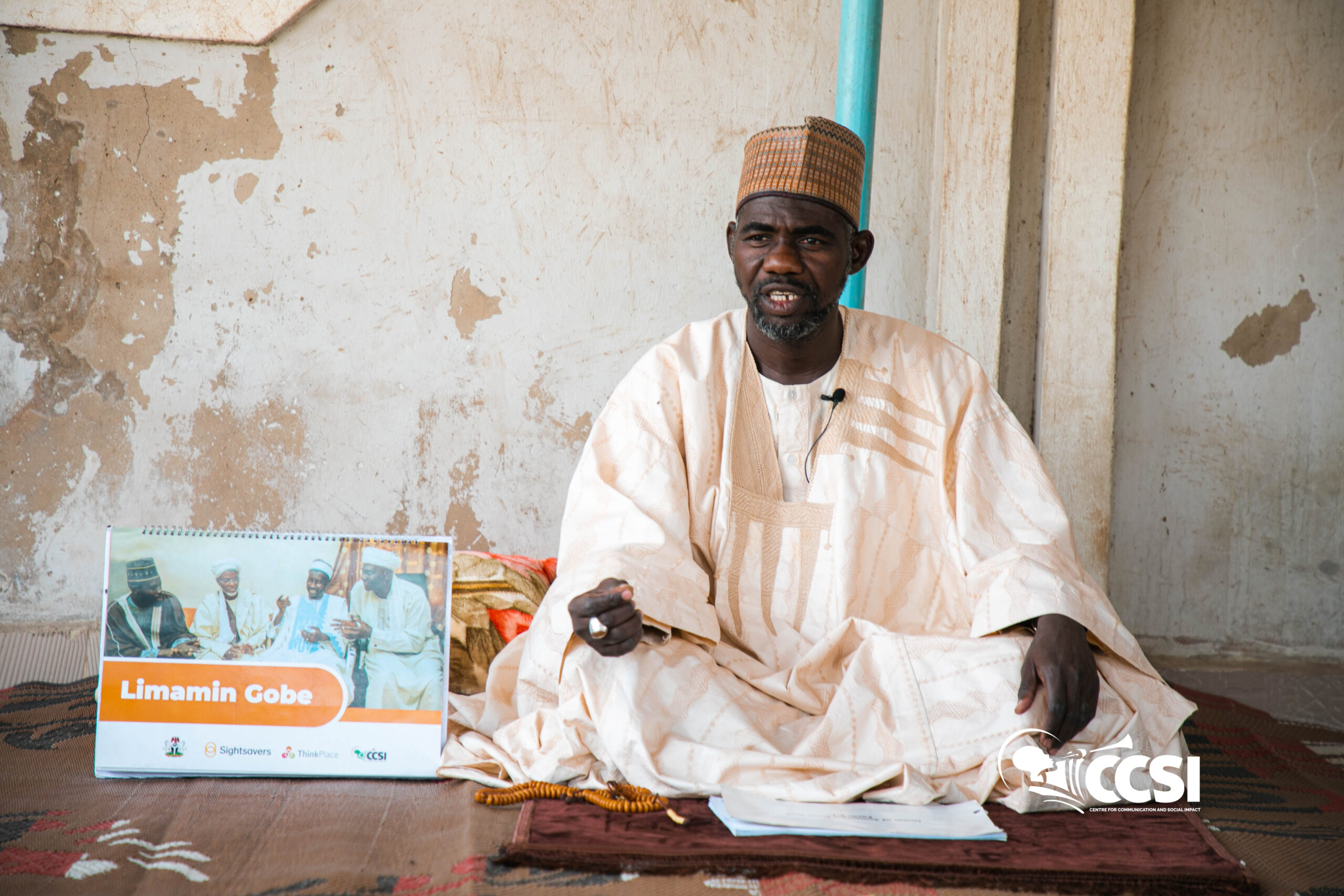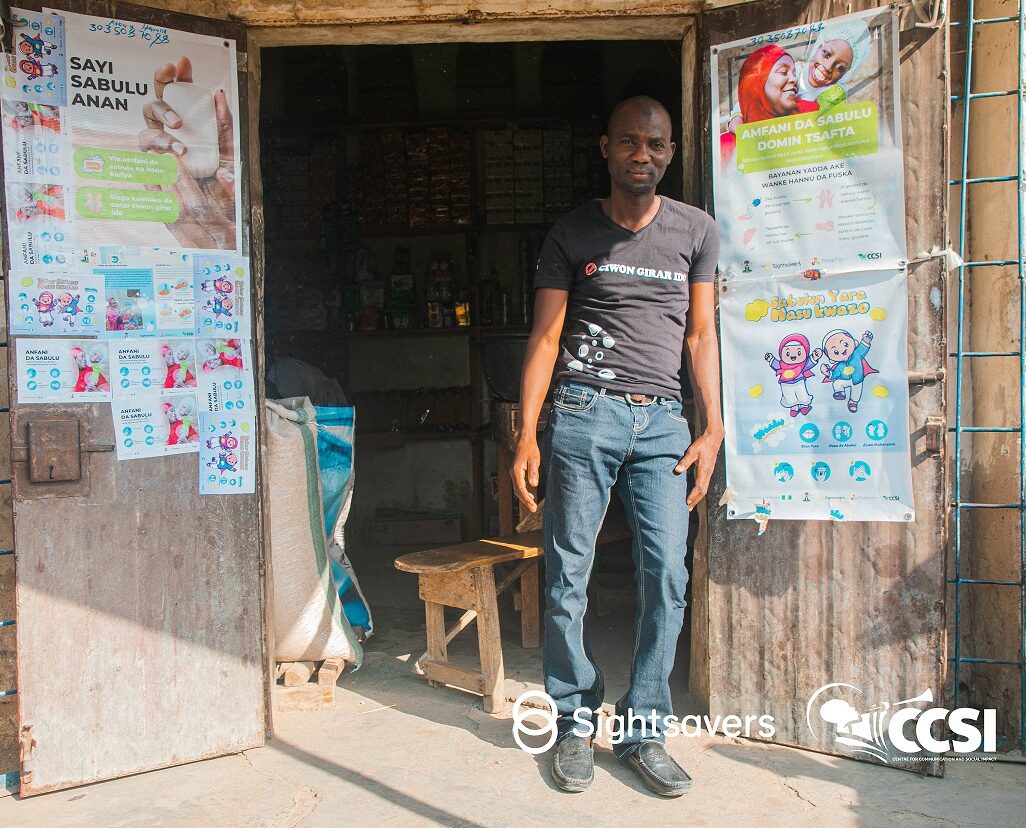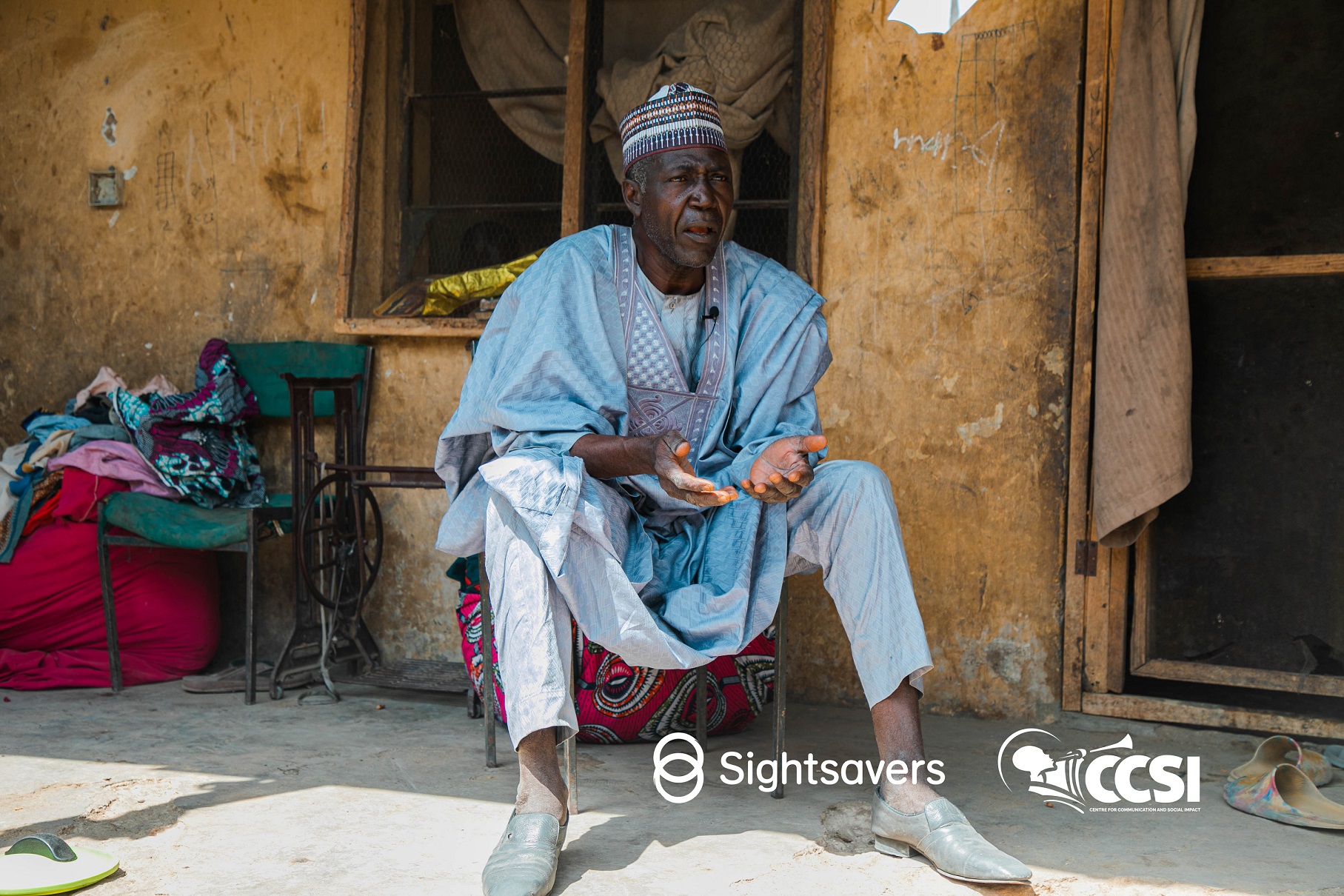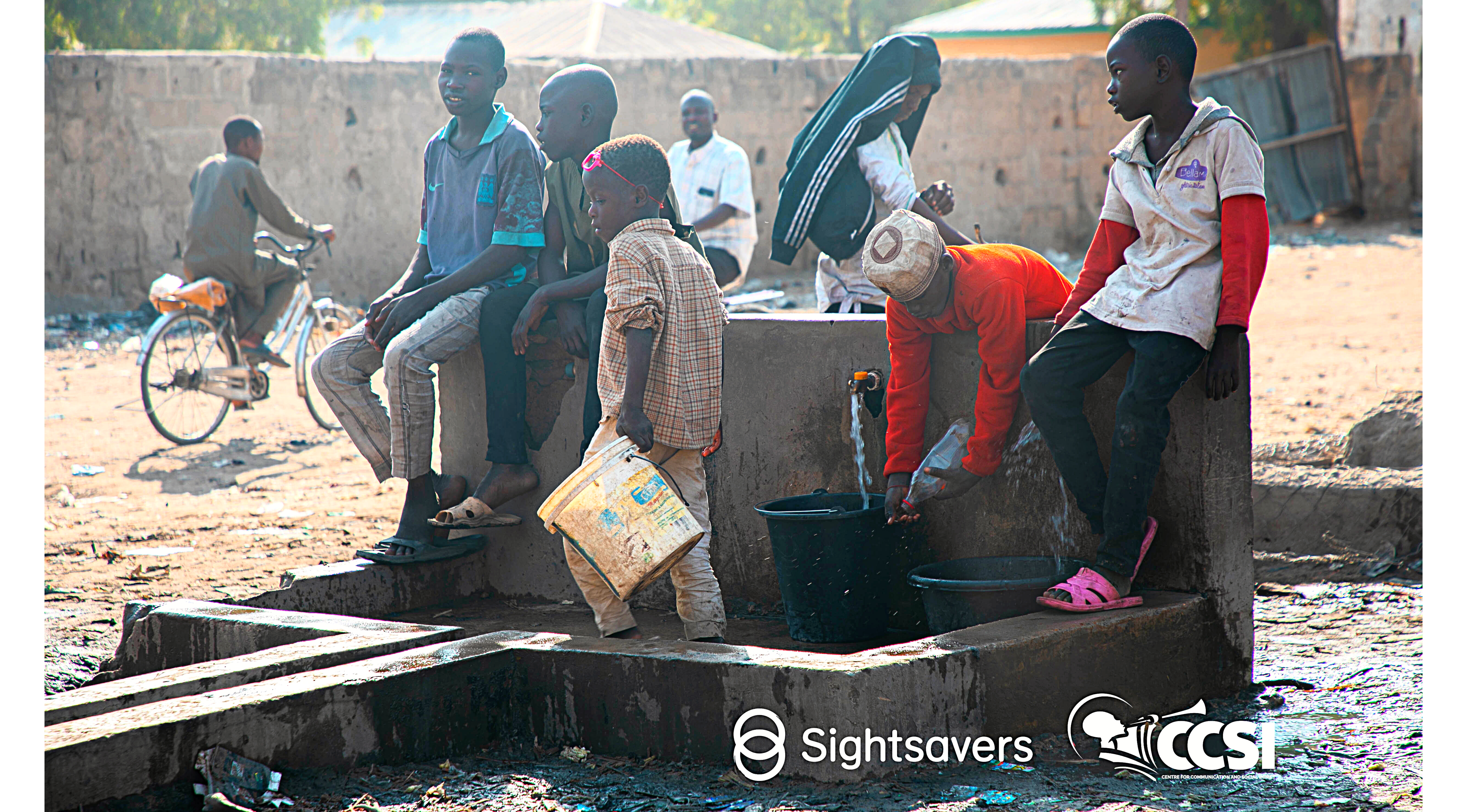Through a Social Behaviour Change Communication campaign, communities in Gashua, Bade local government area of Yobe state are creating awareness on Water Sanitation and Hygiene (WASH) to stop the trachoma epidemic.

Early one morning in January 2023, the women of Lawan Fannami community in Gashua, in Bade local government area of Yobe state gathered to talk about a disease that has caused blindness in 1.9 million people globally. But more worrying is the news that about 50 million people are living with an active trachoma infection, while 125 million people live in areas that are at risk of trachoma globally.
Each woman represented a household; some households have been infected with the epidemic while others are simply trying to prevent an infection. Trachoma has been endemic in Nigeria for many years and Yobe state has the largest burden of the disease with 12 local government areas harbouring the deadly disease.
“We have been receiving messages about how to end the trachoma disease in the community,” Habiba Husseini said. As one of the leaders in the community, she has been a key part of the new surge of campaigning to eradicate the disease in the community.
“The people in the community who didn’t have a latrine have been encouraged to build one, while the main message has been to wash our hands and face with soap and water every time and whenever we visit the latrine,” Habiba said.
A preventable blindness
At least 125 million people spread across 42 countries live in trachoma-endemic areas and are at risk of being infected with the disease according to the World Health Organisation (WHO). The disease is caused by the infection of the bacterium Chlamydia trachomatis.
To be infected with the bacteria is quite easy, the infection according to the WHO spreads through “personal contact (via hands, clothes, bedding or hard surfaces) and by flies that have been in contact with discharge from the eyes or nose of an infected person.
“With repeated episodes of infection over many years, the eyelashes may be drawn in so that they rub on the surface of the eye. This causes pain and may permanently damage the cornea.”
However, there are environmental factors that empower the spread of the disease, which include inadequate hygiene, crowded households, inadequate access to water, and inadequate access to and use of sanitation.
In November 2021, the Federal Ministry of Health (FMoH) identified four interventions that can be delivered to promote healthy hygiene and sanitation practices amongst at risk populations in support of trachoma elimination and other Neglected Tropical Diseases (NTD) control programs in Nigeria.
The Centre for Communication and Social Impact (CCSI) was engaged by the international nonprofit organization Sightsavers to support the delivery of these four SBC interventions (Imams of tomorrow, Qazami tales, Clean, Beautiful & Strong: Face & Hand hygiene and Upgrade your life radio series) in eighteen (18) trachoma endemic local government areas (LGAs) across the four states of Jigawa, Katsina, Sokoto, and Yobe State.

Kabiru Haruna has just opened his store in Lawan Fannami community when two children ran up to him. They were there to purchase soap for washing.
“As a soap vendor in this community, I am part of the campaign to eradicate trachoma through the washing of hands and face using soap. Since this campaign began, I have seen a 100 percent increase in the sale of soaps,” Kabiru said.
The soap vendors are critical to the campaign; they spread the message to whoever walks into their store. Kabiru’s store is adorned with beautiful and informative posters to encourage residents to purchase more soap. Children are also rewarded with a sticker whenever they purchase a bar of soap from accredited vendors.
The campaign also utilizes the importance and relevance of religious leaders to spread the awareness on how to stop trachoma through hand and face washing.

Dubbed “Limamin Gobe” or Imams of tomorrow, they preach about good hygiene during every call to prayer. This method, according to Imam Ahmed Jinjiri of Sarkin Hausawa community, has led to the building of more latrines by the community.
Kabiru Wakili has become one of the role models in that community. After listening to the Imam, he decided to expand his toilet facilities, building two modern latrines, and making plans for two more after the completion of his house.
“It is important for the message to come through the Imams because they are well respected in the community. That is why I am increasing the number of toilets in my house to four. It is important for us to get rid of trachoma in our community and using the religious leaders is a great way to do it,” Wakili said.
______________________________________________________________________________________________
About Us
The Centre for Communication and Social Impact (CCSI) is a leading Social and Behaviour Change (SBC) organization with expertise in utilising evidence from research to implement effective strategies that address barriers preventing designated audiences from adopting recommended behaviors. Birthed by the Johns Hopkins Center for Communication Programs (JHCCP), Baltimore, USA, and registered in 2001 as a Non-Governmental Organization with the Corporate Affairs Commission of Nigeria, CCSI continues to work towards being the center of excellence in strategic communications in Africa. Driven by values of integrity, passion, care, innovation, and excellence, CCSI focuses on the central role of strategic communication to impact behaviors, build brands, and provide technical leadership in health and social development.
